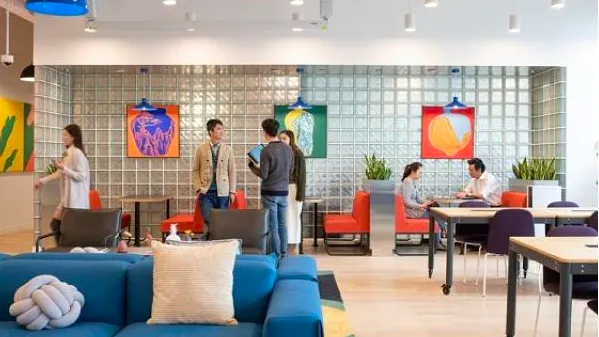
Tokyo CBD’s flex space stock now at 417,490sqm
The supply has increased two-fold since the pandemic started.
As the pandemic fuelled a massive shift to hybrid work, the demand for flexible workspace in Tokyo CBD is on an uptrend. Large corporates are now looking for serviced and coworking offices as they adopt a multi-strategic approach to work spaces.
According to JLL, as of the first quarter of 2022, the total stock of flex space in Tokyo’s CBD was 417,490 sqm (Figure 1), or more than a two-fold expansion since the onset of COVID-19. Community-oriented offices mainly contributed to the growth and now the co-working segment accounts for 65% of the flex space in central Tokyo.
Here’s more from JLL:
Since the COVID-19 outbreak, some large corporates have less than 30% of employees commuting to their headquarters due to hybrid working. Although the state of emergency has been lifted and more employees are commuting to offices compared to the previous year, it is yet to be determined when the entire workforce will.
As a result, more corporates are opting for flex space, even relocating entire headquarters to navigate the uncertain times. Agile workspaces that can be quickly right-scaled are useful since many corporates are still in the process of building their long-term office strategy.
Other drivers of flex space, such as employee motivation of highly talented workers, culture-building and innovation from collaborative efforts, which were cited in pre-COVID-19 times, are still valued. Use of pre-built spaces and capex savings are a few other often cited demands.
However, the need for more flexibility in lease terms, particularly among large corporates, is proving to be the game-changer in these uncertain times and is evolving new ways for flex space to add more users.
Third-party operators and domestic real estate developers continue to build their networks in anticipation of further demand. In 1Q 2022, Singapore-based co-working operator JustCo opened its first location in Shibuya Hikarie and is scheduled to launch several more large-scale facilities in central Tokyo this year. Meanwhile, WeWork has a new place in Kabutocho, and Regus opened its first high-end series called Signature and plans to launch more locations during the year. Several domestic operators are also scheduled to open new locations later in the year.
Flex space in the CBD is approximately 2.3% of total Grade A office stock as of 1Q22. As more large corporates use flex spaces, the segment is expected to be a more visible and essential component for more prime offices in central Tokyo.
Hybrid work has increased demand for flexible workspace in Tokyo CBD and is expected to have a long-lasting effect on demand, driving further growth for the industry.



















 Advertise
Advertise





